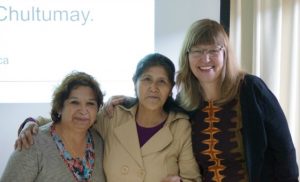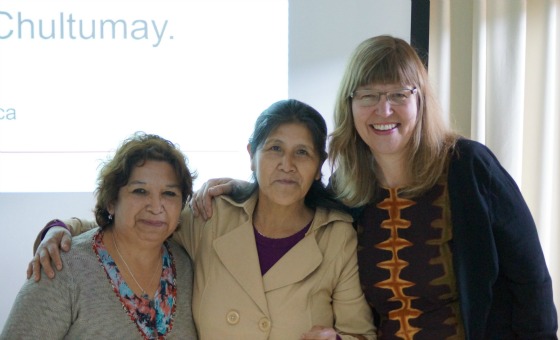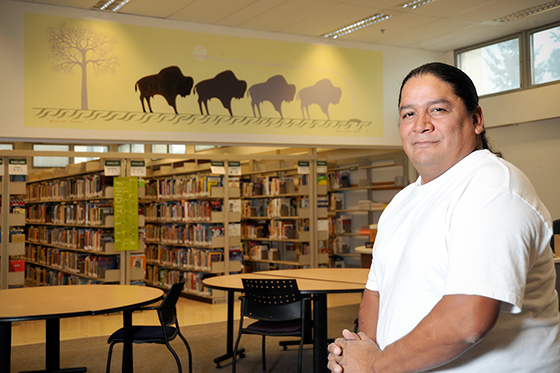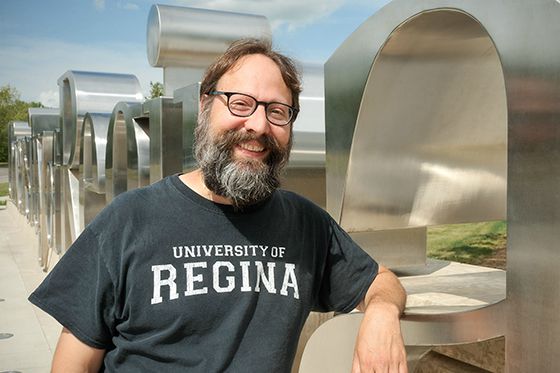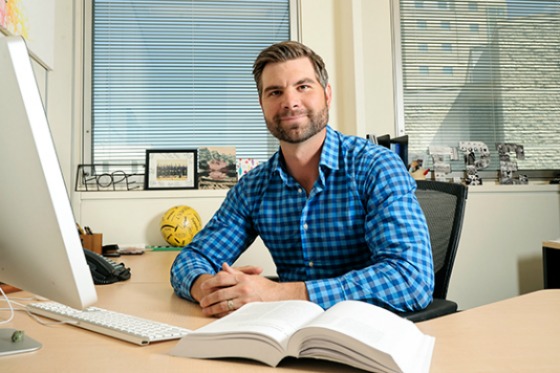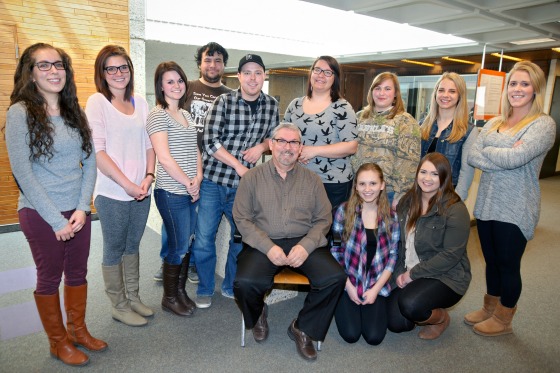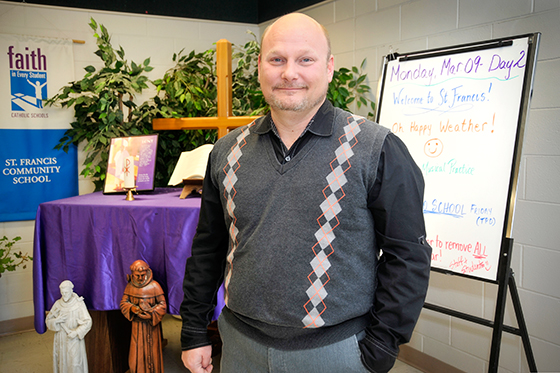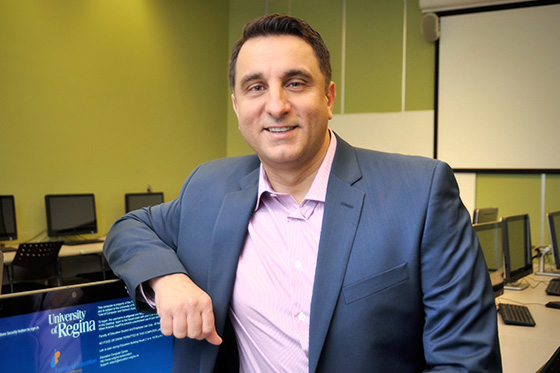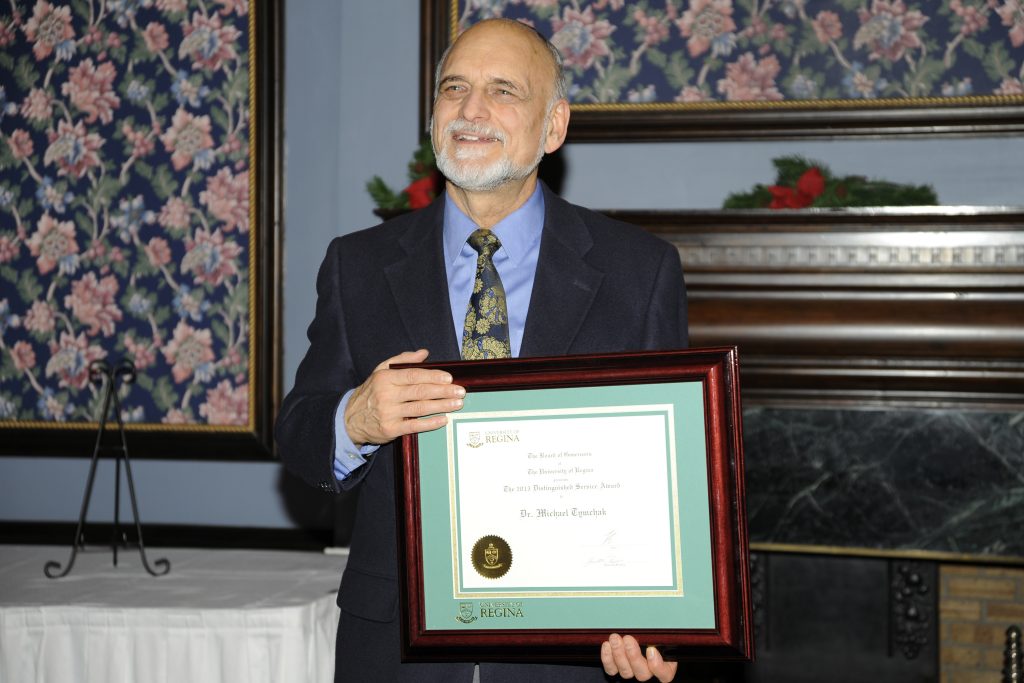Posted: February 3, 2016
Dr. Cindy Hanson, Associate Professor in Adult Education at the Faculty of Education, has formed a close relationship with Mapuche women in Southern Chile which has resulted in a book about her work with Mapuche weavers. Dr. Hanson is the author of “Weaving Stories Between Generations.” The book is the result of her research focussing on Mapuche women in southern Chile where Dr. Hanson has spent years getting to know the locals. The idea for a book came from the study participants in Chile.
Below are some random excerpts from Dr. Hanson’s book.
The Relationship with the Mapuche
My work with the Mapuche spans two decades. Way back in the 1990’s, I was teaching Native (Indigenous) Studies in rural Manitoba. I was learning about Indigenous cultures and peoples in Canada and I was also learning about issues that affected their daily lives, for example issues of colonialism that continue to cause harm.
Earlier in my life I had been active in working with Chilean refugees who were coming to Canada to escape the brutalities of Pinochet’s dictatorship.
In the early 1990’s I applied and received a Canadian International Development Agency (CIDA) Professional Award that would take me to Chile for a six-month period to work with Casa de la Mujer Mapuche (House of the Mapuche Women) – a Mapuche women’s organization based in Temuco.
Casa de la Mujer Mapuche worked on areas of health and education, but most significantly it worked with women in 12 Mapuche communities – assisting them with improving and marketing their woven textiles.
Early impressions
 |
| Weavers at Pitrufquén: “The women spoke with pride about weaving as the greatest heritage they have from their mother or grandmother.” |
I remember being shocked at how Chile, in the post-dictatorship years, was changing. The 1990’s were early years of neoliberalism and Chile then was referred to as the dragon or jaguar of Latin America. Around Southern Chile however, the Mapuche seemed unaffected. They could still be found visiting the city with wooden carts and ponies. But, like other places, Canada included, the economic surges, were not sustainable – not for the environment or the people. The Mapuche of Argentina and Chile, like many other Indigenous peoples, continue to live off the land and hold a relationship to the land as sacred.
Living in Chile taught me about how the world was structured and how borders of nations and cultures are also determined by sex, race, class, ability and so on.
Inspiring Studies
Working with Mapuche women inspired me to pursue a Masters of Adult Education. I kept in contact with some of my friends around Temuco and eventually this research brought me back to Temuco again.
The Study
The study explored how Indigenous women in two countries – one in Southern Chile and the other in Northern Canada [several communities in Saskatchewan] – learned how to produce textiles. In total, I met with 23 Mapuche weavers in Chile.
Most of the women from the four Mapuche communities were not familiar with the other communities or with each other. A translator for Mapadugun to Spanish was also present and the women were encouraged to speak in Mapadugun. It was at the discussion group in Temuco, that the women involved in the study were asked how they would like to share the research with a wider community. They had many ideas, but after listing and ranking all the ideas, they agreed that a book about the research was what they wanted.
 |
| Lunch with the weavers who met in Temuco, Chile. |
Changes and children
The women felt that urban migration and globalization have strongly impacted younger generations.
Furthermore, they confirmed that school curricula, especially in Chile, has ignored Indigenous knowledge. Many participants said children are now concerned with technology and making money, and not returning to Mapuche communities.
Weaving – integral to identity
Significant to this study were the stories generated by the women – a few of those stories are shared in this book. The women spoke with pride about weaving as the greatest heritage they have from their mother or grandmother and said it defines their sense of culture and pride. The stories from Mapuche women also mentioned that weaving reduced stress and led to feelings of well-being.
Dr. Cindy Hanson is Director of the Adult Education and Human Resource Development Unit at the U of R. She received assistance in her research from U of R doctoral students Romina Bedogni and Heather Fox Griffith. The research team collaborated with Indigenous scholars from Saskatchewan, Manitoba and Chile. Hanson was able to further her research thanks to a Memorandum of Understanding between the University of Regina and Universidad de la Frontera in Temuco, Chile. Funding assistance was provided by the Social Sciences and Humanities Research Council. Weaving Stories between Generations is available for purchase at Amazon.ca, Chapters-Indigo and Kobobooks.
